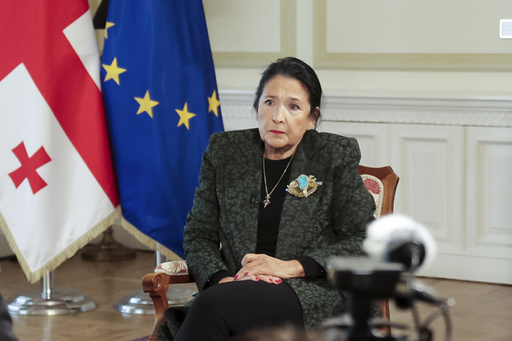
BRUSSELS — Prime Minister Viktor Orban is once again shedding light on the dysfunction within the European Union, consisting of 27 member states, as he takes a bold stance regarding the contested election results in Georgia. The Hungarian leader, who is known for his close ties to Russian President Vladimir Putin and has been in power for an extended period, is currently serving as the rotating president of the EU. He has used this position in ways that emphasize the internal conflicts within the bloc.
Orban’s actions have cast doubt on the EU’s ability to project a united front, particularly when it comes to addressing Russia’s ongoing military actions in Ukraine. The most recent controversy arises from the disputed electoral outcome in Georgia, where opposition parties have accused the ruling populist party of manipulating the vote. In a surprising move, Orban announced his intention to visit the Georgian capital to meet with his local allies.
While Orban made his declaration, EU officials spent the weekend deliberating a diplomatic response to the situation, aiming to express their dissatisfaction with the electoral success of the Georgian Dream party. Many in the EU view this party as increasingly aligned with Moscow, deviating away from the aspirations of numerous Georgians who seek closer ties to the EU.
In a bold proclamation before the final votes were even counted, Orban extended his congratulations to the Georgian Dream party for their supposed overwhelming victory, emphasizing that Georgians understand their own needs and have made their voices heard. A formal EU statement, which was issued a full day later, called for authorities in Georgia to “fulfill their duty to swiftly, transparently, and independently investigate” the allegations of vote manipulation.
Allegations of electoral fraud have emerged alongside claims of rampant disinformation and aggressive anti-EU sentiment. According to EU spokeswoman Nabila Massrali, the narratives surrounding this election appeared to reflect themes directly sourced from Russian propaganda. This anti-EU messaging is not only propagated from Moscow and within Georgia but also from Budapest, marking a troubling shift not seen since the contentious Brexit campaign in the UK nearly a decade ago.
Last week, Orban’s confrontational stance escalated when he addressed a gathering of supporters, alleging that the EU aims to dismantle his government and impose a “Brussels puppet government” on Hungary. He subsequently claimed that the EU had placed a center-right government in Poland to eliminate the country’s previous right-wing populist leadership, though he provided no evidence to substantiate these assertions.
Orban’s visit to Georgia is not unprecedented in terms of attracting criticism from EU counterparts. Just weeks earlier, after Hungary had assumed the EU’s rotating presidency, he traveled to Moscow for talks with Putin, presenting the visit as part of a so-called “peace mission.” This meeting was sharply condemned by other EU leaders, who insisted that he did not represent their interests.
Since assuming presidency in July, Orban has increasingly clashed with EU officials, particularly regarding support for Ukraine. His tendency to obstruct or dilute initiatives aimed at aiding Ukraine or sanctioning Russia has led to accusations of undermining EU solidarity and serving Moscow’s agenda.
In an indicative showcase of his political priorities, Orban decided to instead visit Georgia while he was supposed to deliver a keynote speech at a summit for EU parliamentary committees in Budapest, a commitment he cancelled at the last moment to engage with Georgia’s Eurosceptic leadership.
Georgian President Salome Zourabichvili, who supports opposition protests against the election results, noted the broader implications of Orban’s actions. She suggested that his undermining of EU cohesion is not limited to Georgia’s situation, highlighting it as a significant European issue. In her view, Orban’s visit is merely a political maneuver.
